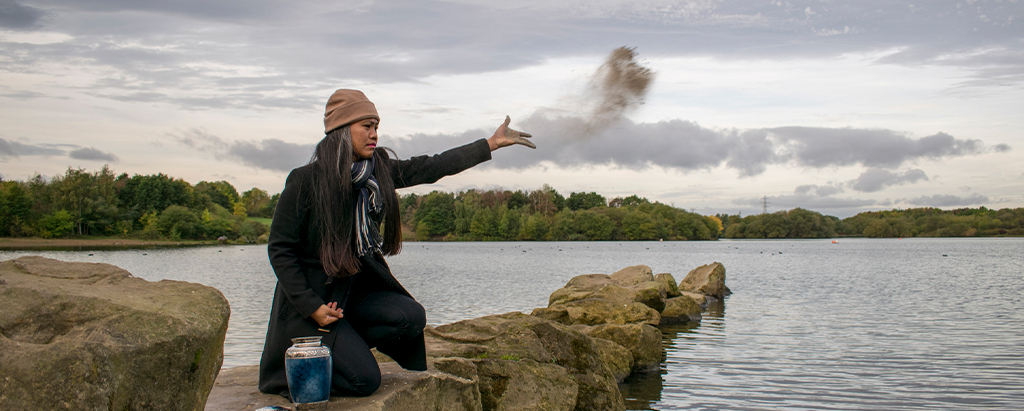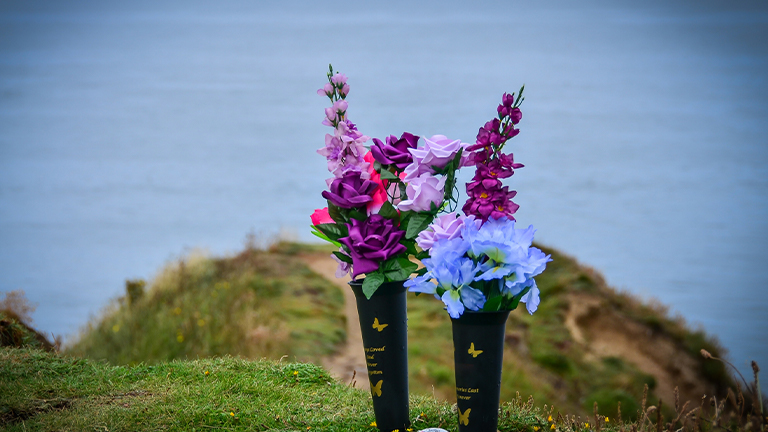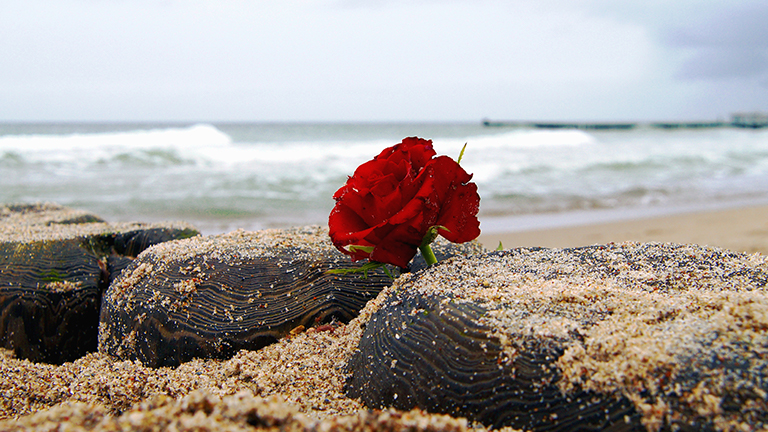Home / Help and Advice / Arranging a funeral / A guide to scattering ashes
A guide to scattering ashes
When your loved one has been cremated, you’ll be given their ashes. For many people, scattering the ashes of their loved one is a way to memorialise them. Others choose to transform the ashes into something that will stay with them forever such as a locket. Whatever you choose to do with your loved one’s ashes, read our guide for inspiration and advice.

Where should I scatter my loved one’s ashes?
Scattering a loved one’s ashes can be a highly personal and ceremonial moment. For many, choosing somewhere that meant something to their loved one is important. Popular options include scattering ashes in a memorial garden, at a family grave, or somewhere that holds special memories, such as at sea or at the beach.
While this is a personal choice, there are also regulations to be aware of, as sometimes you’ll need to seek permission to scatter the ashes of a loved one in the location you’ve chosen.
Regulations on scattering ashes in the UK
Although there are no laws in the UK that prohibit scattering ashes in certain places, it is advisable to seek permission from the landowner beforehand. If you’re scattering ashes over land that belongs to you, a memorial garden, or a body of water, you do not need permission.
However, when scattering ashes at sea or in a river or lake, you should seek advice from the environmental agency. They will have the relevant information on specific locations or areas where you may be looking at scattering the ashes.
Scattering ashes at sea or on a river
In some faiths, scattering ashes at sea or in a flowing river is part of the mourning process. Others are drawn to the idea of scattering ashes in water for non-religious reasons. Whilst permission from a landowner is not a consideration when scattering ashes in water, there are some environmental regulations that must be considered. These include making sure the place you choose is not near a marina or fishery and checking the site is more than 1km upstream from a reservoir or water plant.
It’s also advisable to choose a calm day for the ash scattering. This will ensure that the ashes are not accidentally caught by the wind and spread on land or water that they were not intended for.


Scattering ashes on private land
For some, scattering ashes on private land, where family and friends can feel close to their loved one, is the right choice. This could be a patch of land that you own, or it could be your garden or property. When thinking about this option, consider that if you sell your property or land in the future, you’ll need the new owner’s permission to visit in the future.
If you choose to scatter ashes on private land that belongs to someone else, you’ll need their permission in advance.
Scattering ashes on public land
Places that are designated as common land in the UK are available for anyone to walk on. Think village greens, council-owned playing fields, public parks, and other such common patches of land. However, even though the public are allowed to freely roam these spaces, this doesn’t mean that scattering ashes is allowed. If you’d like to scatter ashes anywhere on public land, you’ll need to gain permission from your local council first.
Scattering ashes on National Trust land
National Trust properties hold meaning for so many people in the UK, it’s no surprise that they are becoming a popular option for scattering ashes. Before you do, ensure you get permission from the landowner, who you should be able to get in contact with through the National Trust.
Scattering ashes in a cemetery
A cemetery may seem like the most obvious choice for scattering a loved one’s cremated remains. Laying them to rest with other family members or on a family grave can be a personal way to commemorate your loved ones. However, even though you will be scattering ashes and not performing a burial, you will need to make sure that you own the exclusive burial right for the grave. If this has expired, you may need to renew before going ahead. If this is not possible, another option could be to scatter ashes at a nearby garden of remembrance – always check first with the crematorium to gain permission.
If you’d like more advice on choosing where to scatter your loved one’s ashes, get in touch with one of our funeral directors today.
Step by step guide
There are several steps in the Funeral Planning process you will have to consider.
Types of funerals
There are a number of different types of funerals available. Which type of funeral service is right for your loved one?
What happens at a cremation service?
Cremations are fast becoming the norm in Britain with over 70% of families choosing this type of
funeral.
Further Reading: Cost of a funeral
Find out about funeral costs and what financial support could be available.